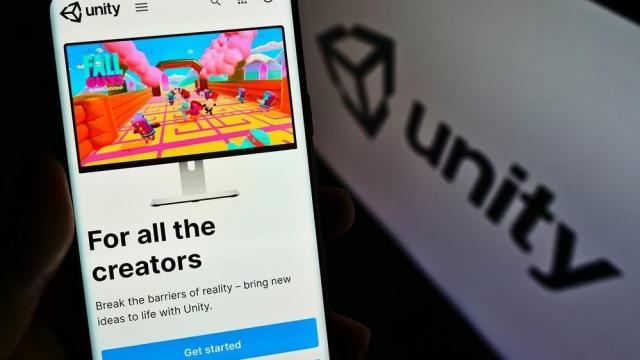Unity is backpedalling after a disastrous attempt to change the fees it charges developers to a model that would charge on a per-download basis, the company announced on Friday. Subscribers to the current Unity Personal platform will not be charged a new fee to develop games on the platform and it will change the revenue cap on games created using that plan.
The cap for using Unity Personal will be increased from $US100,000 to $US200,000 and the Made with Unity splash screen requirement will be removed, Unity Create leader Marc Whitten said in a press release. It is also changing its revenue policies, stating games that incur less than $US1 million in 12 months will not be subjected to the new plan (we’ll update the pricing in this article to Australian figures if they are shared by Unity).
But users of future iterations of Unity, expected to be launched in 2024, will face a larger tax than those who have already used the software to launch games or are currently in development. “The Runtime Fee policy will only apply beginning with the next LTS version of Unity shipping in 2024 and beyond. Your games that are currently shipped and the projects you are currently working on will not be included – unless you choose to upgrade them to this new version of Unity,” Whitten wrote.
He went on to explain that developers will be able to choose how their future fees are assessed, saying: “For games that are subject to the runtime fee, we are giving you a choice of either a 2.5 per cent revenue share or the calculated amount based on the number of new people engaging with your game each month.” Time will tell if this confusing arrangement pleases developers.
“You are what makes Unity great, and we know we need to listen and work hard to earn your trust,” Unity said in the release.
The company shifted its stance after it received criticism from independent studios including the studios behind Among Us, Slay the Spire, and Cult of the Lamb, all of which threatened to abandon the game maker in protest for saying customers would incur a fee each time someone installed a game that was created using its engine.
Garry Newman, creator of Garry’s Mod and founder of Facepunch Studios, told BBC earlier this week that people were “furious” over Unity’s announcement. “That would be like Adobe charging all users of Photoshop per image view,” he said.
The backlash of Unity’s announcement was so great that the company was forced to close two of its offices after some of the employees allegedly received death threats. The company was “made aware of a potential threat to some of our offices” and has “taken immediate and proactive measures to ensure the safety of our employees,” a spokesperson told Bloomberg last week.
The main caveat to the delayed policy is if the developer chooses to upgrade the existing game to the new Unity version. The shift would mean the runtime fee policy would apply.
Whitten acknowledged the company’s error in changing the fees in the press release, saying: “We should have spoken with more of you and we should have incorporated more of your feedback before announcing our new Runtime Fee policy,” He added: “Our goal with this policy is to ensure we can continue to support you today and tomorrow, and keep deeply investing in our game engine.”
Whitten said he will be holding a live “fireside chat” hosted by Jason Weimann on YouTube on Friday at 4 p.m. EST to discuss any questions developers may have at this time.
